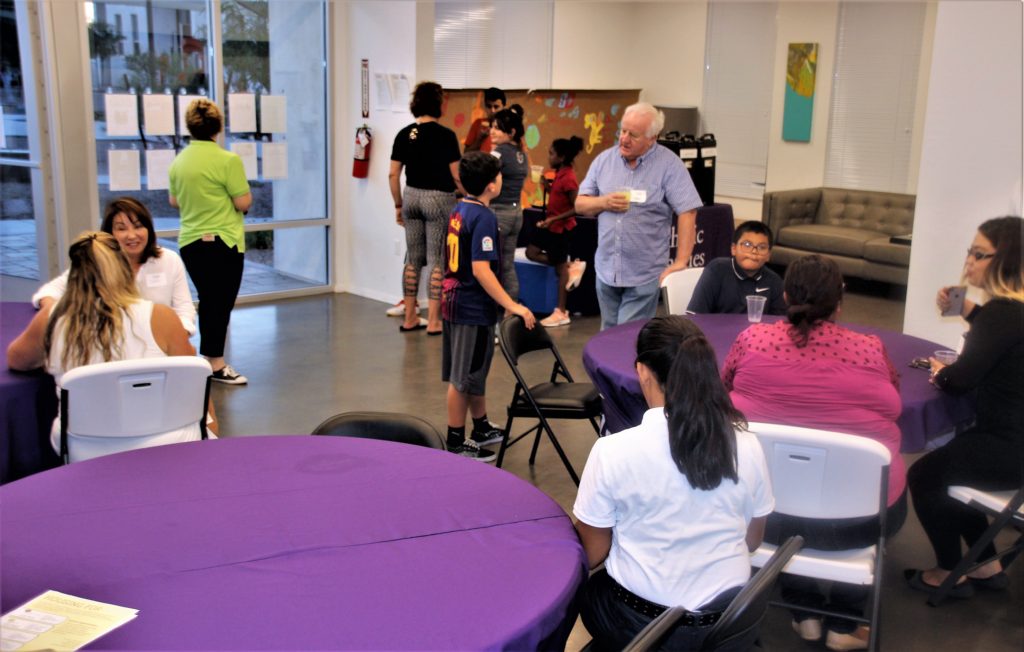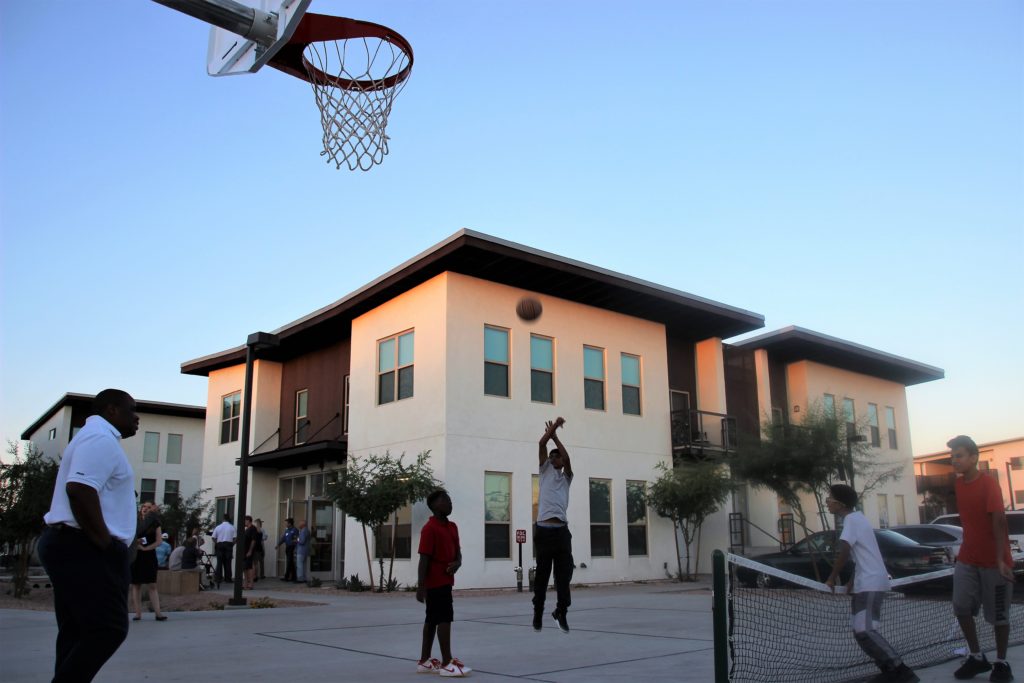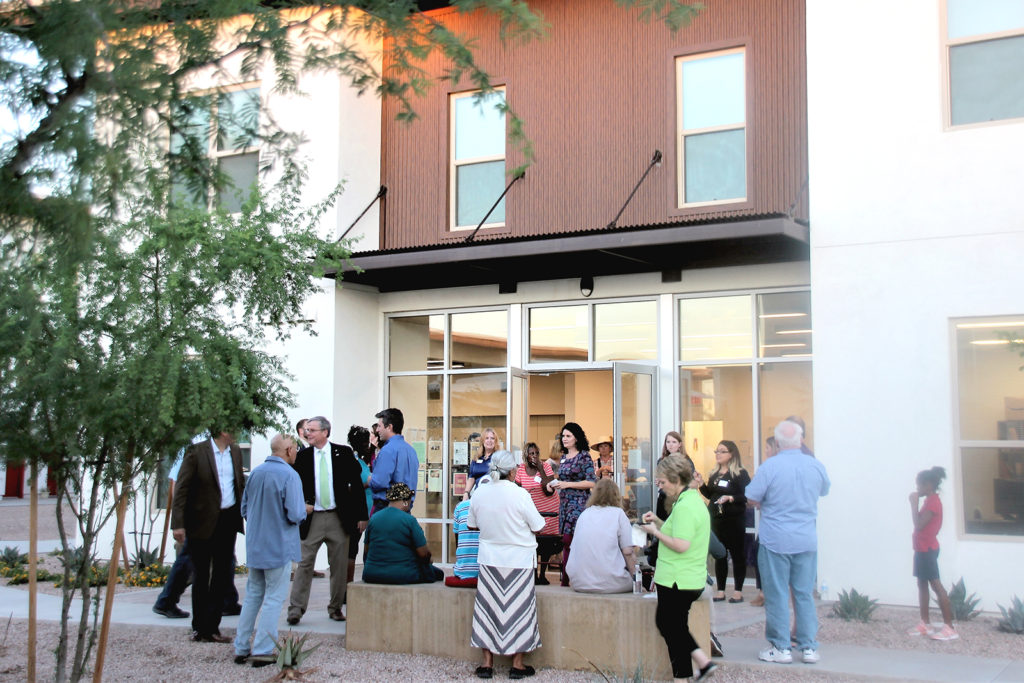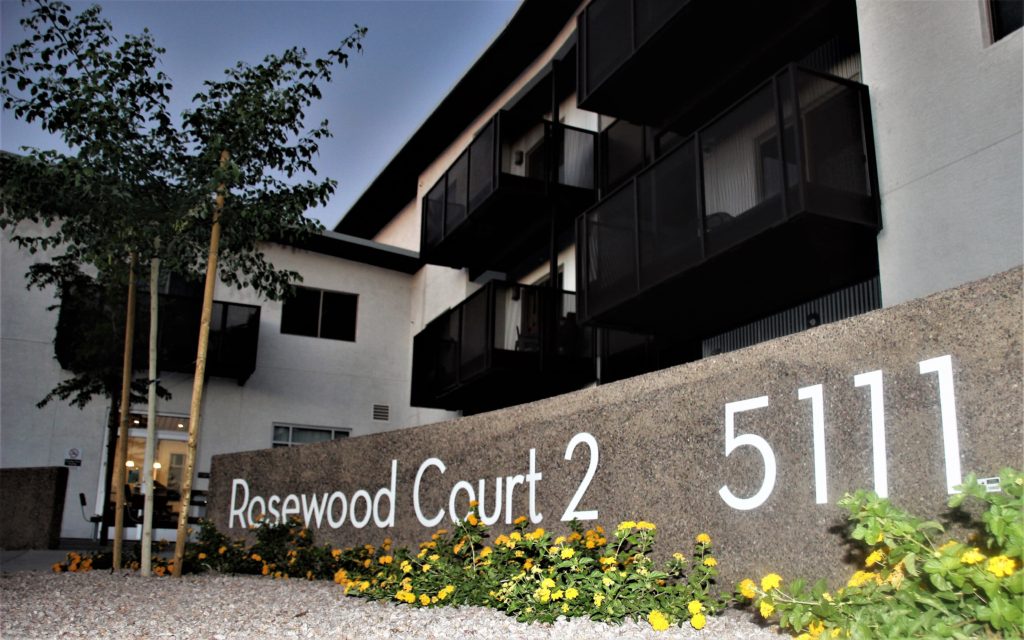
Nearly 200 fewer low-income residents in the Diocese of Phoenix are seeking a place to live, thanks to a new development opened by Catholic Charities in the city’s central section.
Rosewood Court Apartments
5104 N. 16th Ave., Phoenix
(602) 237-6857
manager@rosewoodcourt.net
Rosewood Court, which began accepting occupants late last year, becomes the fourth affordable-housing complex created through Housing for Hope, an affiliate of Catholic Charities founded in 2011 to address the increasing need for such units within the diocese. Set less than a half mile from Valley Metro’s light-rail transportation line off 16th Avenue and Camelback Road, the $20 million development offers one, two and three-bedroom apartments divided between a 95-unit family section and 53-unit portion housing senior citizens. The development joins Verde Villas in Phoenix, Desert Willow in Tempe and Ironwood Village in Glendale on the list of those operated by Housing for Hope, a 501(c)(3) nonprofit organization.
“There is clearly a need for such units with a well-documented shortage in the Phoenix area,” noted Housing for Hope property manager Darnell Cooper following a formal grand opening ceremony at Rosewood Court Oct. 25.
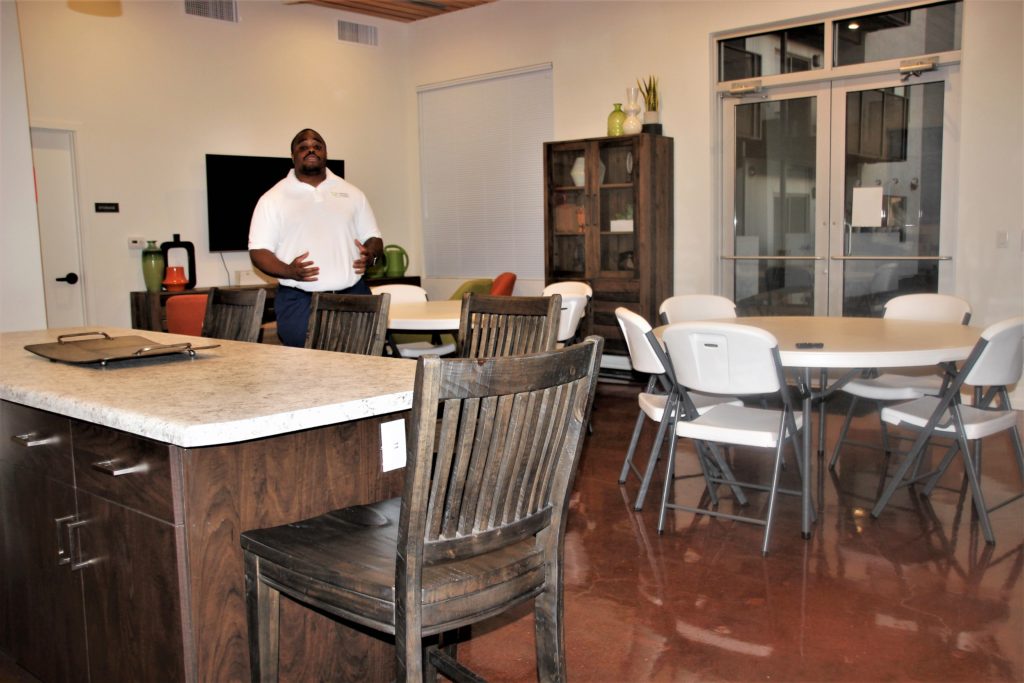
But the project and its companions are more than simply providing living space.
“We call them communities,” explained Catholic Charities president and CEO Paul Mulligan. “We see housing as an affirmation of the dignity of the person. We want to generate more of a sense of community.”
Tosha’s 5 year old son loves to play outside. Unfortunately, playing outside wasn’t an option in their previous apartment complex. All of that changed when she found Rosewood Court.
Read this remarkable story! https://t.co/oSA1yZU40q pic.twitter.com/96Q0v4TwoP
— CatholicCharitiesAZ (@CCArizona) October 24, 2018
Like its predecessors, Rosewood offers a series of resident social programs. A community garden, afterschool activities and senior shopping trips as well as computer work stations are accompanied by regular visits from outside agency representatives.
Gail Griemsmann, 48, a parishioner at St. Francis Xavier, found herself without a home through a series of circumstances, but in December 2017 was able to obtain a unit at Rosewood Court.
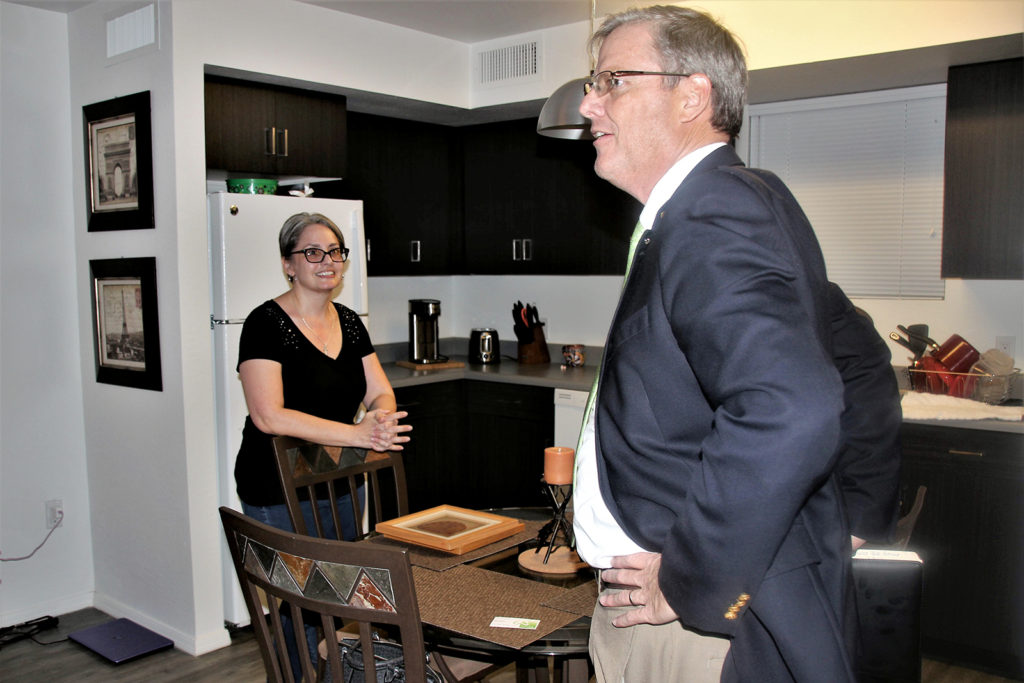
“I was staying with my mom downtown in a 1-bedroom apartment for about three to four months until I could find my own place. It was a very stressful time,” she recalled.
Now working part-time, Griemsmann lives with her two cats in a two-bedroom, nearly 1,000-square-foot unit within a couple miles of church, as well as her job. “This has been a real blessing. I feel comfortable living here; safe. There is more of a sense of community.”
To qualify for residency, an individual’s salary must be at least 40 percent of the median income. Depending on what a resident earns, rent is:
- $436-$709 for a one-bedroom unit
- $503-$831 for a two-bedroom
- $565-$943 for a three-bedroom, according to Steve Capobres, executive director of Housing for Hope and vice president of business development for Catholic Charities.
Apartments include all utilities except electricity.
Backed by investors, typically large banks and corporations with large corporate-tax liabilities, the $20 million project will become the property of Catholic Charities once the tax credits these investors receive expire after 10 years, and their period for complying with affordable-housing rules ends in 15 years, he stated in an email.
The benefit to residents and Catholic Charities can’t be measured in numbers alone, though.
“We do these things to help people experience a fullness of life,” Mulligan explained. “So much is picking up pieces where brokenness has happened; it might be domestic violence, foster care, addicted parents. All these things symptomatically relate to the family breakdown. If we can work upstream with families to stabilize them, it is a way to alleviate these social (problems). These are real people’s lives. We feel that is part of our Catholic Social Teachings.”



